PLOS ECR Editorial Summer reading list
With summer and vacation upon us, we can finally catch up on some reading. For some reason, there is never enough time in the normal work day to acquire further knowledge through books and sometimes even new scientific articles. Anyway, here follows some suggested summer must-reads that we as editors personally recommend from our different scientific fields and backgrounds.
Andreas’s books
This summer I want to suggest a few books on climate change, since this is a question more pertinent than ever, plus that I currently devote much of my waking time to finishing a book on climate change and health.
The Uninhabitable Earth: Life After Warming
Expanding on his article in New York Magazine on climate change that went viral two years ago, David Wallace-Wells paints a grim picture of the climate crisis awaiting us in there form of collapsing ice sheets, water scarcity, food shortages, extreme heat waves that will burn longer and more. His conclusion? That it is worse, much worse, than what we think and that we must act now. A must-read to get some sense of what’s going on and what to do. Especially, since much of these changes are already here and that we need to prepare and adapt for further distortions.
Losing Easy: A Recent History
The New York Times Magazine devoted an entire issue to Nathaniel Rich’s groundbreaking chronicle now expanded into book form. Losing Earth tells the human story of climate change and how it could be averted thirty years ago. The book reveals in detail the birth of climate denialism and the fossil fuel industry’s coordinated effort to hinder climate policy through misinformation propaganda and political influence. Emphasizing on the lives of the people who wrestled with the great existential threat of our age, the reader is guided through a political drama with politicians failing its citizens through inaction. And although frustrating to know how close we were to actually do something while time was on our side, the book also gives inspiration for the need to take immediate action today. Together with The Uninhabitable Earth, Losing Earth was wonderfully jointly reviewed in the New York Times in April.
No One is Too Small to Make a Difference
Meredith’s books
Endurance: My Year in Space, A Lifetime of Discovery
Two of the most famous exports from my hometown of West Orange, NJ are the Kelly twins of the NASA Twin Study. During my time in the West Orange public school system, I didn’t actually know that much about them–they were sort of a mythical tale of what was possible to achieve coming out of our town. Naturally, as a scientist who has never had the heart to live further than two hours from West Orange, Scott Kelly’s memoir was a must-read for me. I devoured his memories of growing up in New Jersey and the path that led him to spend a year on the International Space Station. The personal connection definitely makes me biased towards loving this book, but still, I highly recommend it as a peek into the life of an astronaut. Astronauts aboard the ISS end up having to conduct experiments across many different fields, so I think this book will be appealing to many flavors of scientists.
The Pandemic Century: One Hundred Years of Panic, Hysteria, and Hubris
As a microbiologist, I am inherently drawn to anything about pandemics. When my husband saw this book in a shop on the Upper West Side of Manhattan, he immediately wrote it down as a good gift idea for me. When I saw the book five minutes later, I picked it up to buy it right away. All this to say that I’m biased to find this book fascinating. I’m about a third of the way through, and so far I’m really enjoying learning about some forgotten pandemics (Do you know what parrot fever is? Because I didn’t…) and finding out some context I was unaware of for more well-known ones. If you don’t want to take my word for it, Carl Zimmer recently reviewed the book for the NYTimes. I think this is a great read for those of us who enjoy when science, politics, and history butt up against one another.
Science and the City: The Mechanics Behind the Metropolis
I recently picked this up from the New York Public Library, and I’ve also seen it on a list from Dr. Jess Wade on Twitter with her picks for summer reading. I haven’t had a chance to start it yet, but a window into the science of everyday life in cities sounds awesome to me. And I generally trust the wisdom of #ScienceTwitter.
New York 2140
And just because Andreas is on a climate change kick, I figured I’d mention a book that I can’t put down right now: It’s a science fiction novel that imagines a future in which sea levels have risen by fifty feet, plunging much of New York City underwater. I am enjoying thinking about how life would go on in this perhaps-not-so-hypothetical world, where many coastal cities experience the need to waterproof buildings or shift housing to dry land in emergencies. A suspenseful read that will make you think.

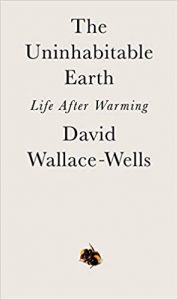
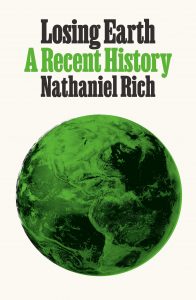
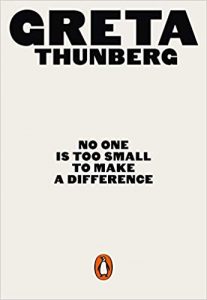
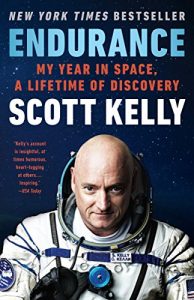
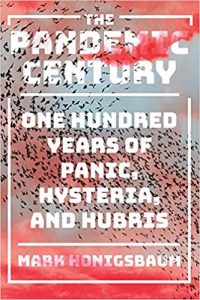
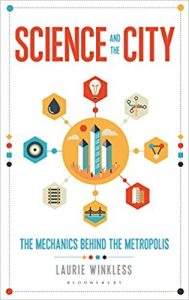
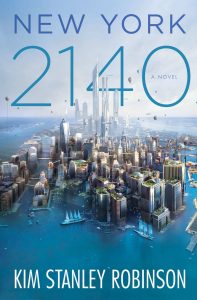
[…] I’ve been digging into some climate change booklists. The first book I checked out is Being the Change: Life Well and Spark a Climate […]